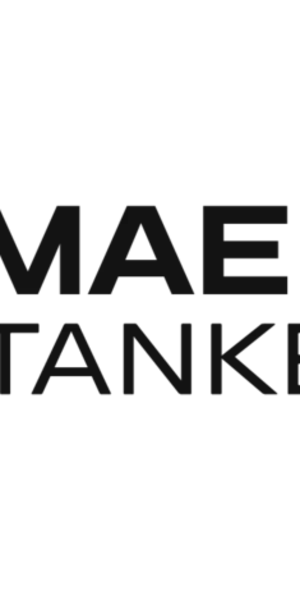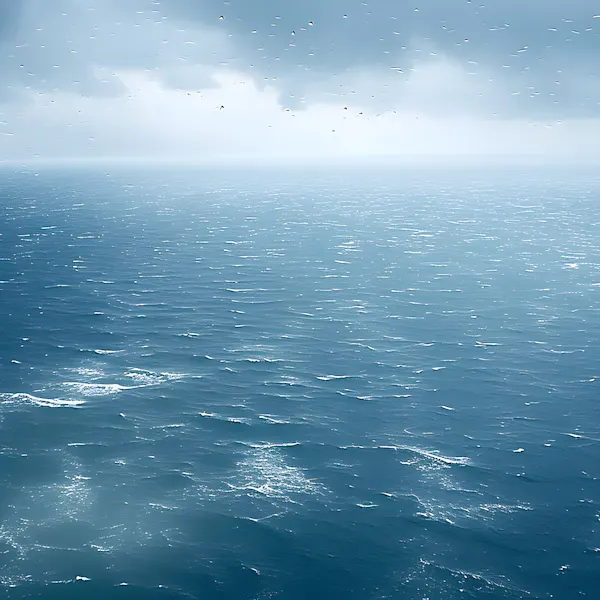Customer Story: How Maersk Tankers optimised their data validation
On the cusp of new environmental regulations, Maersk Tankers embraced new technologies to streamline data collection, validation and reporting to better meet decarbonisation targets while improving collaboration between vessel and shore teams.
About Maersk Tankers
Maersk Tankers provides commercial management solutions for shipowners in the tanker industry, operating one of the largest tanker fleets in the world. Founded in 1928, Maersk Tankers uses their century of experience to develop and deploy solutions that help shipowners boost the economic and environmental performance of their vessels. With 300 employees worldwide, Maersk Tankers has 150 ships under management and operates more than 2,000 voyages annually.

In late 2022, Maersk Tankers officially rolled out ZeroNorth’s Vessel Reporting solution, which promotes collaboration between Masters, Chief Engineers, and shore teams with multi-user support, transparent version histories, and over 200 validation points.
Almost immediately, the Maersk shore team noticed improvements in the quality of data they were receiving. Click play to hear how Kartik Kathavate, Head of Fuel Optimisation at Maersk Tankers, has implemented Vessel Reporting to seamlessly connect ship and shore.

THE CHALLENGE
Combatting fragmentation in an evolving industry
Historically, reporting in the shipping industry has been very fragmented. But with new regulations and an ongoing effort to reduce carbon emissions, it is essential to find new solutions for validating and reporting on data at the fleet and vessel level.
The legacy program run by many in the industry had outlived its utility due to its reliance on manual input and inability to effectively integrate with other systems.
“Unless your data is accurate, you are not going to meet regulatory standards.”
Kartik Kathavate — Head of Fuel Optimisation, Maersk Tankers
“We needed a tool that could handle specific validations — something that could flag potential issues with the reporting and provide the underlying data,” said Kartik Kathavate, Head of Fuel Optimisation at Maersk Tankers. “That’s so essential with regulations today, because everything is about data. Unless your data is accurate, you are not going to meet regulatory standards.”
When evaluating alternatives, one requirement was to find a solution that would reduce the work for the vessel teams by improving collaboration with on shore staff. At the time, vessel teams had to submit nearly identical reports, both in their reporting tool and via Excel sheets, effectively doubling their workload.
“Establishing a shared data reality was our first priority,” explained Kartik. “When a Master or Chief Engineer fills in certain parameters, those same parameters are replicated on shore within the commercial tool, ensuring that our team members don’t have to fill out multiple Excel sheets. That is the essence of having a shared reality: looking at the same data and agreeing on how to use that data in the years to come.”
As vessels have become better connected with the Internet, Maersk Tankers was also focused on upgrading to a cloud-based system. Existing tools were difficult to install and maintain — requiring an agent to board each vessel and physically access the computers on board. That could mean waiting weeks for a vessel to come to shore, creating long delays and resulting in outdated equipment.
For these reasons — and many more — Maersk Tankers founded ZeroNorth, investing in new technologies to optimise shipping operations with a special focus on sustainability.
THE SOLUTION
Connecting ship and shore via the cloud
In late 2022, Maersk Tankers officially rolled out ZeroNorth’s Vessel Reporting solution, which promotes collaboration between Masters, Chief Engineers, and shore teams with multi-user support, transparent version histories, and over 200 validation points.
Almost immediately, the Maersk shore team noticed improvements in the quality of data they were receiving.
“We’ve been able to get a vessel up and running within a week, including the whole process of getting the technical documents from the pool partner and for the first report to come in and get validated.”
Kartik Kathavate — Head of Fuel Optimisation, Maersk Tankers
“With the validations coming in, we are seeing greater cohesion because there is a single source of truth now,” said Kartik. “From an engineering perspective we have our vessel performance managers who are looking at data quality day-in and day-out, and the noon reporting data feeds directly into our bunker adjustment data. We’re saving time in terms of both vessel staff and operators.”
That kind of cross-tool communication was another challenge that ZeroNorth Vessel Reporting was able to resolve: “Given how many different tools we work with, we thought integration was going to be a major problem for us,” explained Kartik. “But the way ZeroNorth works has made integration a huge success in ensuring that the tool comes online as fast as possible.”
As a fully cloud-based solution, ZeroNorth was able to provide Maersk Tankers with a quick and seamless vessel installation process. “We didn’t need to do any physical installation at all,” said Kartik. “In fact, we’ve been able to get a vessel up and running within a week, including the whole process of getting the technical documents from the pool partner and for the first report to come in and get validated.”
Best of all, the Masters and Chief Engineers across the Maersk Tankers fleet have been satisfied with the Vessel Reporting tool, which has significantly eased their workflows. “The auto-generated email functionality is particularly helpful,” said Kartik. “Before, the Master had to write emails to various entities — agents, port authorities, etc — and that was a very time consuming task. Today that email is auto-generated with all the parameters already filled into the tool, which just creates a win-win situation for us.”
THE FUTURE
Promoting collaboration to promote decarbonisation
When considering a change in reporting systems, Kartik has one piece of advice: “Make sure that you’re creating less work for your Masters and Chief Engineers. These are the people on the front line, and if we cannot get their buy-in we’ve already lost the battle.”
“Getting robust reporting mechanisms in place is our way of preparing for success and seeing that trajectory we have always wanted.”
Kartik Kathavate — Head of Fuel Optimisation, Maersk Tankers
With ZeroNorth Vessel Reporting, the responsibility for data collection, validation and reporting shifts from the vessel staff to on shore teams. At Maersk Tankers this has represented a shift in how their organisation operates — one that they expect will better help them achieve their reporting and decarbonisation requirements while improving efficiency for their crews.
Finally, as regulations like CII and EU ETS begin to come into effect, members of the commercial shipping industry will have an even greater need for robust, reliable data, turning inefficient legacy systems into significant liabilities.
While Maersk Tankers is already using ZeroNorth Vessel Reporting to optimise its data flows and reporting, Kartik is looking to the future:
“I think there is still a lot to discover in terms of what this tool is capable of. When we talk about 2% or 3% carbon reductions, that looks like a small number. But that’s actually equal to the sixth-largest emitter in the world, which is massive. So you have to get into that perspective to realise what a change you’re bringing into the system. Getting robust reporting mechanisms in place is our way of preparing for success and seeing that trajectory we have always wanted.”